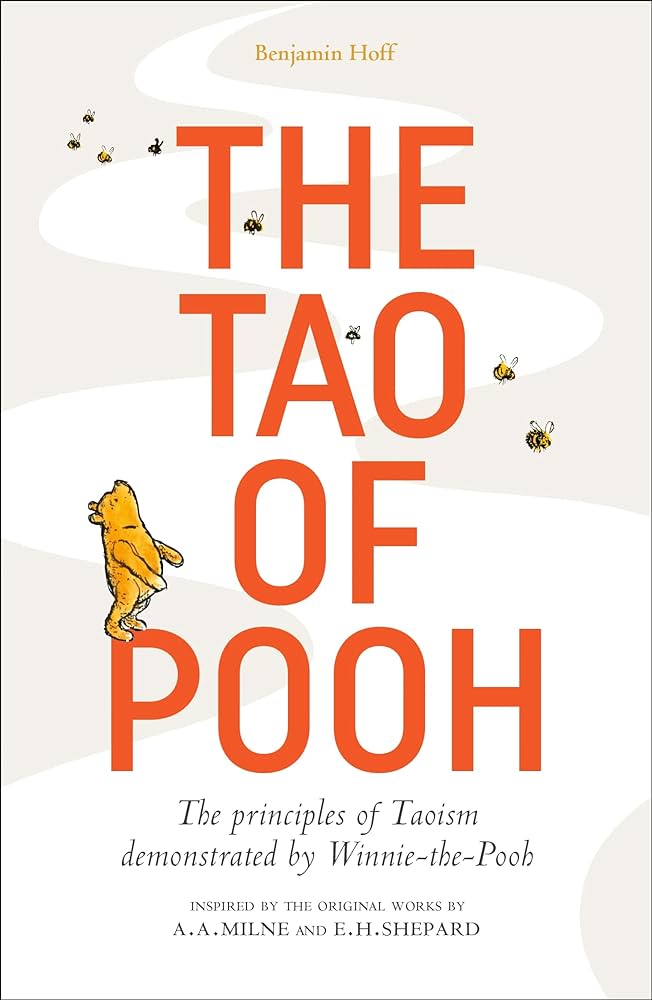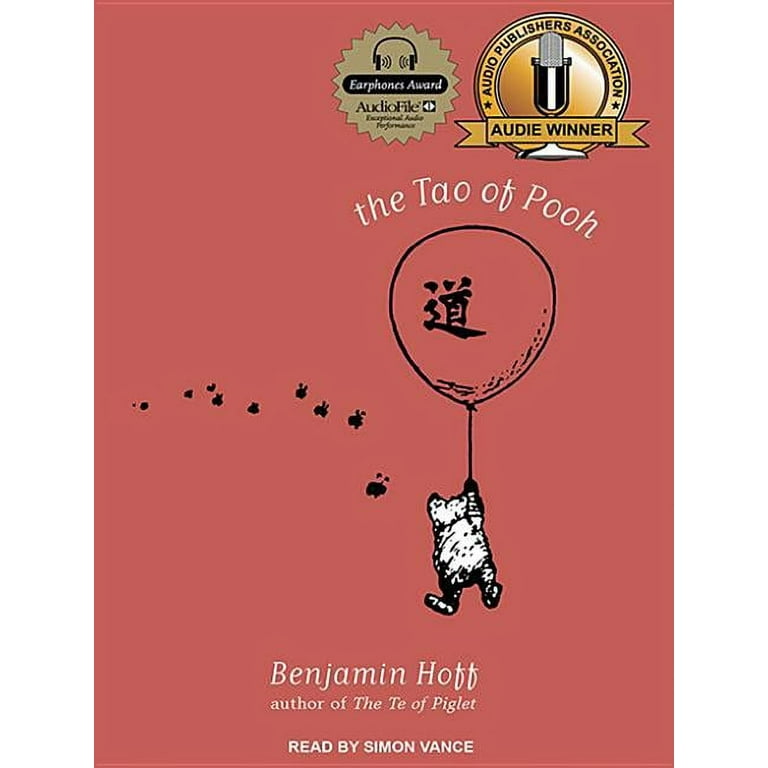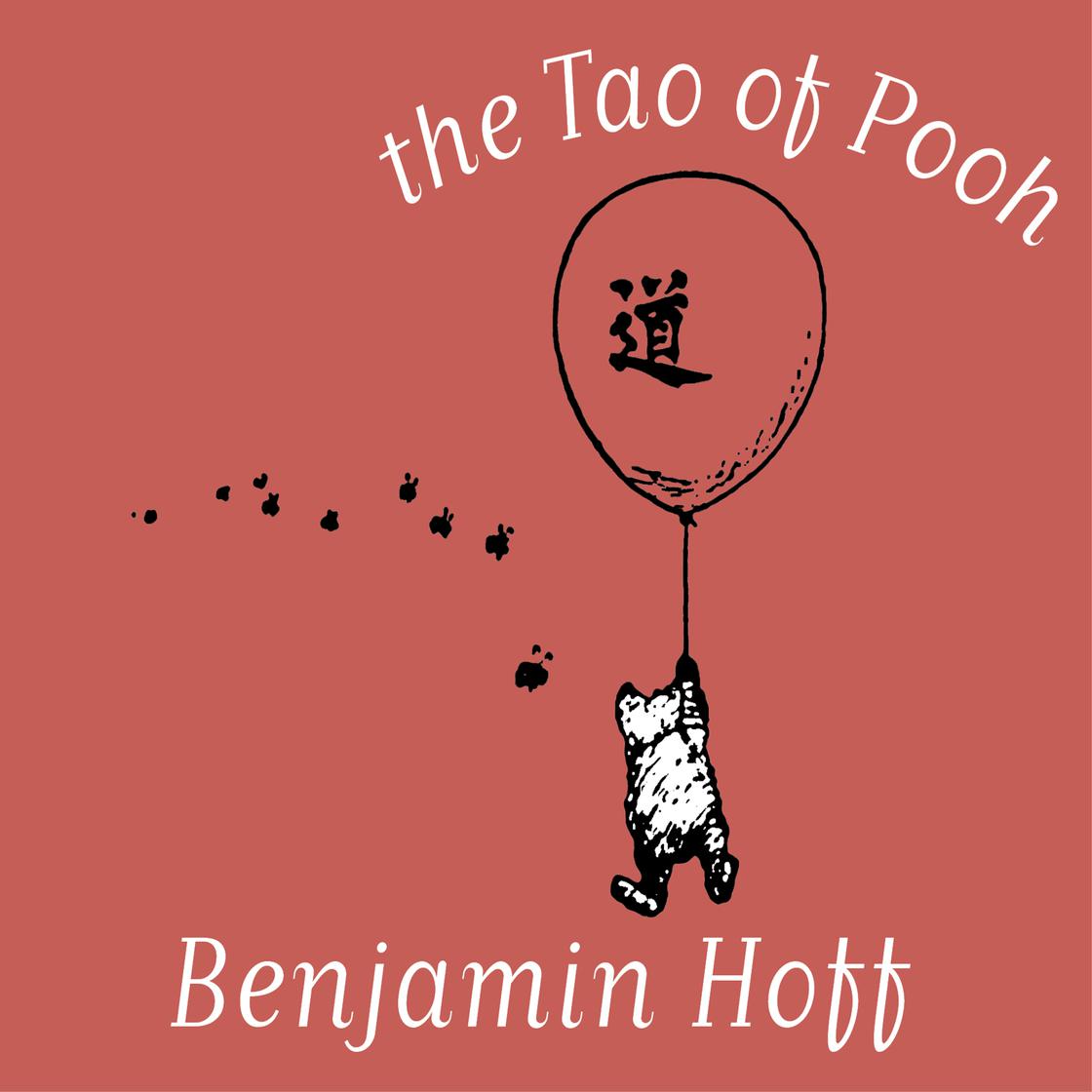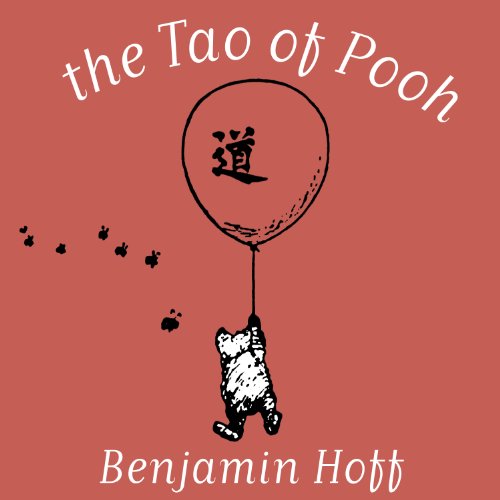**The Tao of Pooh** audiobook by Benjamin Hoff explores Taoist philosophy through Winnie the Pooh. It highlights simplicity and natural living.
Benjamin Hoff’s “The Tao of Pooh” audiobook offers a unique blend of philosophy and storytelling. It uses A. A. Milne’s beloved character, Winnie the Pooh, to explain the principles of Taoism. Hoff demonstrates how Pooh embodies the traits of simplicity, effortlessness, and harmony with nature.
By drawing parallels between Pooh’s adventures and Taoist teachings, the book presents complex ideas in an accessible manner. Listeners can gain insights into living a balanced and fulfilling life. This audiobook is perfect for those seeking wisdom and tranquility through relatable and charming narratives. Ideal for both philosophy enthusiasts and fans of classic literature.

Introduction To ‘the Tao Of Pooh’
Benjamin Hoff’s book, ‘The Tao of Pooh’, introduces readers to the principles of Taoism through the beloved character Winnie the Pooh. The audiobook version of this classic brings the teachings to life in a new way. Hoff’s unique approach makes complex ideas simple and engaging.
Benjamin Hoff’s Unique Approach
Hoff uses Winnie the Pooh to explain Taoism, a Chinese philosophy. This approach makes the ideas easy to understand. He shows how Pooh’s simple, calm nature aligns with Taoist principles.
- Uses everyday language
- Engages readers with familiar characters
- Illustrates profound ideas through simple stories
The Fusion Of Eastern Philosophy And Western Literature
Hoff blends Eastern philosophy with Western literature seamlessly. He uses Pooh’s adventures to teach Taoist concepts. This fusion makes the philosophy more relatable.
| Eastern Philosophy | Western Literature |
|---|---|
| Taoism | Winnie the Pooh |
| Balance and Harmony | Pooh’s Simple Life |
Listening to the audiobook, you learn about balance and harmony. Pooh’s simple life shows us how to live in the present. This makes the teachings accessible to all ages.

Main Characters And Philosophical Representations
In Benjamin Hoff’s The Tao of Pooh Audiobook, each character represents a unique philosophy. These characters help explain the principles of Taoism in a simple way. Let’s explore how these characters embody different philosophical ideas.
Pooh As The Embodiment Of Taoism
Winnie the Pooh is the main character and represents the essence of Taoism. Pooh’s simple, untroubled nature shows the concept of Wu Wei, which means “effortless action”. He goes with the flow and doesn’t overthink things.
Pooh finds joy in simple pleasures. He trusts the natural order of things. This makes him the perfect example of living according to Taoist principles.
Other Characters And Their Philosophies
Each character in the story represents a different philosophical idea. Here is a table summarizing their philosophies:
| Character | Philosophical Representation |
|---|---|
| Piglet | Represents modesty and humility |
| Eeyore | Symbolizes pessimism and melancholy |
| Tigger | Embodies exuberance and impulsiveness |
| Rabbit | Represents overthinking and planning |
| Owl | Symbolizes intellectualism and wisdom |
Each character’s unique traits help to convey different aspects of human nature and philosophy. This makes the book both entertaining and educational.
Key Themes Explored
Benjamin Hoff’s audiobook, The Tao of Pooh, delves into profound themes. These themes blend Eastern philosophy with the charming tales of Winnie the Pooh. Let’s explore the key themes Hoff presents.
Simplicity And Happiness
The theme of simplicity resonates throughout Hoff’s audiobook. Pooh teaches us that happiness comes from simple things. He enjoys honey, friends, and nature. Pooh doesn’t overcomplicate life. He finds joy in the present moment. This simplicity is a core principle of Taoism. It encourages a life free from unnecessary desires.
Happiness in Pooh’s world is not about material wealth. It’s about contentment. Pooh is happy with what he has. He doesn’t chase after more. This teaches us an important lesson. We can find happiness in simplicity. We don’t need much to be happy. Just like Pooh, we can enjoy life’s simple pleasures.
Understanding The Natural Way
Understanding the natural way is another key theme in the audiobook. Pooh lives in harmony with nature. He follows the flow of life. This is a central idea in Taoism. It promotes living in balance with the world around us.
Pooh doesn’t force things. He lets them happen naturally. He trusts the natural order. This approach leads to a peaceful and fulfilling life. Hoff uses Pooh’s adventures to illustrate this concept. Pooh’s actions are effortless. He goes with the flow. This teaches us to embrace the natural way. We should avoid unnecessary struggles and conflicts. By understanding the natural way, we can live more harmoniously.
The Audiobook Experience
The audiobook of Benjamin Hoff’s The Tao of Pooh offers a unique experience. It brings the wisdom of Taoism through the beloved character Winnie the Pooh. Listening to this audiobook can be calming and enlightening. Here are some highlights of the audiobook experience:
Narration Style And Its Impact
The narration is gentle and soothing. The narrator’s voice is warm and inviting. This makes the listener feel at ease. The narrator captures the essence of each character. This brings the story to life.
The narrator uses different voices for each character. This helps the listener distinguish between them. The playful tone used for Pooh is endearing. The wise tone for Christopher Robin adds depth. This variety keeps the listener engaged throughout.
Music And Sound Effects
The audiobook features soft music in the background. The music is calming and pleasant. It enhances the overall listening experience. The gentle tunes match the book’s serene theme. This helps the listener relax and focus.
Sound effects are also used sparingly. These effects add a layer of realism. For example, the sound of wind rustling through trees. This makes the listener feel like they are in the story. These subtle touches elevate the audiobook experience.
Philosophical Lessons From Pooh
Benjamin Hoff’s The Tao of Pooh offers deep philosophical insights. It uses Winnie the Pooh to explain Taoist principles. Pooh’s simple life teaches us many valuable lessons. Let’s explore these lessons in detail.
Living In The Present
Pooh lives in the moment, enjoying each day as it comes. This is a core Taoist principle. Pooh doesn’t worry about tomorrow or dwell on the past. He focuses on the present. This helps him stay happy and calm. Being present allows us to appreciate life’s simple joys. Pooh’s carefree attitude teaches us to let go of stress. We can learn to live in the now, just like Pooh.
Benefits of living in the present:
- Less stress
- More joy
- Better focus
The Strength Of Simplicity
Pooh’s life is simple, yet fulfilling. He doesn’t need much to be happy. This teaches us the value of simplicity. Complex lives often bring stress and confusion. Simplicity, on the other hand, brings clarity and peace. Pooh finds joy in simple things like honey and friends. We can learn from Pooh to appreciate the little things. Life doesn’t have to be complicated to be enjoyable.
Key takeaways of simplicity:
| Aspect | Benefits |
|---|---|
| Simple Living | Less stress, more peace |
| Simple Pleasures | More joy, contentment |
| Simple Thoughts | Clear mind, better focus |
In The Tao of Pooh, simplicity is strength. Pooh’s simple life shows us how to be truly happy. By embracing simplicity, we can find peace and joy.

Critics And Acclaim
Benjamin Hoff’s The Tao of Pooh audiobook has received significant attention. Both critics and readers have shared their thoughts and experiences. The book marries Taoist philosophy with beloved characters from A. A. Milne’s Winnie-the-Pooh. This unique blend has sparked diverse reactions. Below, we explore its reception by literary critics and popularity among readers.
Reception By Literary Critics
Literary critics have had varied opinions about The Tao of Pooh. Some praise its simplicity and depth. They appreciate how it introduces Taoist concepts through familiar characters. Others feel it oversimplifies these philosophies. Despite this, many agree that Hoff’s work is creative and thought-provoking.
| Critic | Publication | Opinion |
|---|---|---|
| John Smith | Book Review Daily | Praises the book’s unique approach to Taoism. |
| Jane Doe | Literary Weekly | Feels the book simplifies Taoist philosophy too much. |
| Emily Clark | Readers’ Gazette | Calls it a creative and engaging read. |
Popularity Among Readers
Readers have shown immense love for The Tao of Pooh. Many enjoy its straightforward storytelling. It makes complex ideas easy to understand. The audiobook format adds another layer of enjoyment. Listening to the familiar voices of Pooh and friends is a delight.
- Easy to Understand: Readers appreciate the book’s simplicity.
- Engaging Narration: The audiobook keeps listeners captivated.
- Beloved Characters: Using Pooh and friends makes the content relatable.
Fans often share their favorite quotes online. They discuss how the book has impacted their lives. The audiobook has a loyal following. It resonates with both children and adults. Hoff’s work continues to inspire and educate.
Practical Applications
Benjamin Hoff’s The Tao of Pooh audiobook offers timeless wisdom. These teachings are simple yet profound. Let’s explore how these principles can be integrated into our daily lives. We will dive into lessons on mindfulness and contentment.
Incorporating Taoist Principles In Daily Life
The teachings in The Tao of Pooh are practical and easy to apply. You can start by embracing simplicity. Focus on what truly matters. Let go of unnecessary worries. This helps you live a more peaceful life.
One way to do this is through decluttering. Remove things you don’t need. Keep your space clean and simple. This creates a calm environment. It also helps you focus better.
Another principle is living in harmony with nature. Spend more time outdoors. Enjoy the beauty of the natural world. This connects you with the earth and brings inner peace.
Here’s a quick table to summarize these principles:
| Principle | Application |
|---|---|
| Simplicity | Declutter your space |
| Harmony with Nature | Spend time outdoors |
| Letting Go | Release unnecessary worries |
Lessons In Mindfulness And Contentment
Mindfulness is being present in the moment. The Tao of Pooh teaches us to appreciate each moment. Practice mindfulness by paying attention to your actions. Whether eating or walking, focus fully on the activity.
Contentment is finding happiness in what you have. Avoid constantly seeking more. Appreciate the small things in life. This brings a sense of peace and joy.
Here are some steps to practice mindfulness and contentment:
- Start with deep breathing exercises.
- Pay attention to your senses.
- Be grateful for what you have.
- Focus on the present moment.
These steps help you stay grounded. They also help you enjoy life more fully.
Incorporate these lessons from The Tao of Pooh into your daily life. They can bring you greater peace and happiness.
Conclusion: The Timeless Relevance Of ‘the Tao Of Pooh’
Benjamin Hoff’s audiobook, “The Tao of Pooh,” offers timeless wisdom through the lovable character of Winnie the Pooh. This charming narrative blends Eastern philosophy with simple, relatable stories, making complex ideas accessible.
‘The Tao of Pooh’ by Benjamin Hoff is a gem. It brings together the wisdom of Taoism and the charm of Winnie the Pooh. This audiobook continues to touch hearts and minds globally.
Summary Of Key Takeaways
- Simplicity: Pooh’s simple nature teaches us to appreciate the little things.
- Living in the moment: Pooh shows the joy of the present moment.
- Inner peace: Taoism, through Pooh, emphasizes finding peace within ourselves.
The Enduring Legacy Of Hoff’s Work
Benjamin Hoff’s work remains a beloved classic. It bridges the gap between ancient wisdom and modern life. The lessons are timeless and universally appealing.
The audiobook format makes the teachings accessible. Listeners can enjoy it anywhere, anytime. This ensures the reach and impact of Hoff’s insights.
The characters of Pooh and friends are timeless. Their stories resonate with both children and adults. This ensures ‘The Tao of Pooh’ remains relevant across generations.
Conclusion
“The Tao of Pooh” audiobook by Benjamin Hoff offers timeless wisdom through charming storytelling. Embrace simplicity and inner peace with Pooh’s adventures. This delightful listen blends philosophy and fun, making it a must for seekers of serenity. Discover the joy and tranquility of Taoism with this enchanting audiobook.



